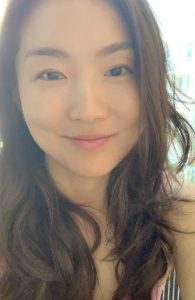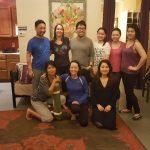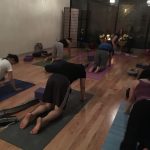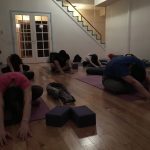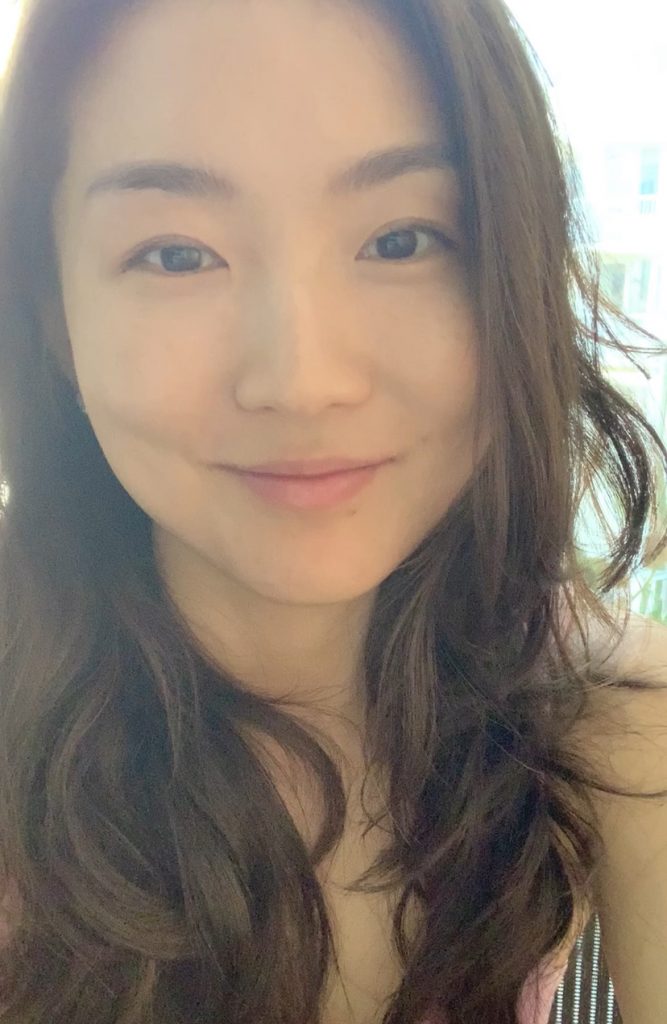
Jane Jeong shares her reflections on the effects of COVID-19 on our day-to-day lives.
I had a really, really good feeling about 2020. On New Year’s Eve 2019, after billing my final hours of the year (I had gotten roped into a Christmas-Grinch corporate merger that finally signed that morning), my boyfriend and I wrapped up the old decade grabbing a cozy dinner with friends in Chelsea, dancing until seven AM at a rave in Brooklyn, refueling at a 24-hour Subway on the way home, and then sleeping the day away like two blissful college freshmen without a care in the world. We woke up only to grab dinner in the West Village, where the quiet streets marked a sobering contrast to all the festivities the night before.
During that dinner, like the two optimistic overachievers we are, we shared several New Year’s resolutions we each had on deck for 2020. My personal list was ambitious: I wanted to find a new job, exercise more regularly, publish my writing, meditate every night, and send my parents on a cruise to celebrate their recent retirement. I hoped to hike Machu Picchu and go to Burning Man for the first time. I already had five weddings, two conferences, two law school recruiting trips, four weekend getaways, and one bachelorette party penciled in my calendar ahead. I had a really, really good feeling about this year, I told him—it was a fresh start of a new decade, and it brimmed with nothing but hope and exciting possibility.
… Well, I guess there is always next year.
There is no way we could have predicted how stunningly our day-to-day lives were about to change just weeks after that dinner. Even among the most fortunate or optimistic of us, there is no denying the emotional toll it has taken to face the stupendous degree and speed by which we parted with our pre-COVID lives. We have all been grieving some kind of loss lately: A loved one, a daily routine, a sense of normalcy or security or freedom, a job, a friendship or relationship, a sense of human connection, vacation plans, wedding deposits, graduation celebrations, our physical health, our mental health… and everything else in between.
My own COVID grief feels like a full-time job sometimes. In my thirty-one years, I have never been more keenly aware of the fragility of life—of just how little control and security we ever had to begin with (despite all the stories we tell to assure ourselves otherwise). There are the big, soul-shattering losses I mourn—like the thousands of lives we have lost and the countless families who are forever changed. I mourn for those of us who suffered alone in quarantined hospital beds during their final hours. I mourn for all the carefree memories and quality time we otherwise would have shared with those we love this year.
And then, of course, there are the smaller losses I miss—the little everyday freedoms I had once taken for granted—like those dinner parties filled with laughter and dates at cute West Village restaurants and sweaty Brooklyn raves and everything else that had all been so ordinary to me just seven months ago. I miss hugging people wherever I go. I miss wearing real pants. I miss old New York—the one brimming with pedestrians, 24-hour subways, rooftop parties, workout classes, bars, restaurants, yoga studios, coffeeshops, comedy shows… and every weird thing we could possibly imagine and then some. I miss the endless plans we used to make, things we used to do, strangers we used to meet.
Depending on the hour or day, I process our losses with varying degrees of grace. Sometimes, I relish the new normal: I appreciate the pockets of time we have gotten back in our days—all those dead minutes we used to pass idling in traffic or blow-drying our hair in the mornings—that now allow me to squeeze in some extra sleep and exercise and Netflix binges. I am grateful for the unexpected opportunity to work side-by-side with my new COVID officemate (and boyfriend, co-chef, roommate, breakfast-lunch-dinner-buddy, haircutter, lover, workout partner, quarantine buddy… all in no particular order). I appreciate how much easier it is now to eat healthier (since we cook most of our meals these days), to save money (it turns out doing nothing is pretty cheap!), and to find pleasure in the utterly mundane things (like rearranging our Tupperware cabinet).
Many days, though, I can’t help but feel like I am trapped in some kind of torturous Westworld loop, in which time is rendered meaningless and every day seems like an exact replica of the one before. July feels exactly like May and May felt exactly like March. I can’t help but dwell on all that we lost—both big and not big—that made the day-to-day once seem more exciting and brimming with promise. I often feel bored, isolated, trapped, lonely, frustrated, and desperate for normalcy again. I feel like I am stuck living at work instead of working from home. I genuinely can’t help but wonder if my youth is passing me by—with my days and weeks and months all bleeding together—all the while as I am stuck at home with nowhere to go.
But maybe… that is exactly the point. Perhaps there was nowhere to go in the first place.
This thought struck me on yet another nondescript Saturday night however many weeks ago (again, who’s counting anymore?), when I was curling up with my journal and realizing just how eerily still my life had become. Maybe this was a natural result of sheltering in place for the better part of this year. Or maybe all those attempts to meditate are actually working. Still, this new quiet is particularly weird for me, because “still” has never been the soundtrack to my life. My pre-COVID self was constantly on the move—always working, always going, always doing. My calendar was jam-packed with brunches and work and workouts and coffee dates and birthday celebrations and dinner parties (sometimes all of the above, all in one day). Even at work, I had my own workstation set up in my best friend’s office so I could avoid sitting alone in mine all day. For any pockets of downtime I had to sit with myself, I filled the quiet with FaceTimes, group chats, podcasts, yoga videos, books, errands, TED Talks—anything to avoid my own solitude. I was rarely, if ever, still.
A part of this is rather natural; I am an extreme extrovert and social butterfly by nature. But I would be lying if I didn’t now wonder whether there had been something more to this. Because for most of my teens and twenties, I never felt quite at home in my own skin. My mind was simply not the kindest place for me to live—and how could it be, when I was the only one in this world who knew all of my flaws and insecurities and mistakes? I was so exacting in all the ways I thought I fell short—all the ways I had wished I were someone “better” than the person I actually was. So was there a part of me that was constantly on the go—over-scheduled, over-stimulated—because I was unknowingly trying to avoid my own self (and all the criticism and anxiety that came with her)? Was I truly seeking joy, or was I unconsciously avoiding pain? And, if the latter, how many disappointments and heartbreaks and mistakes could I have then avoided, had I learned to embrace my own company much earlier in my life? How many Saturday nights in my past did I unknowingly choose to distract myself—with mindless activities and the wrong people—simply because the alternative of sitting alone was too uncomfortable to bear?
I do not suspect I will fully resolve these questions anytime soon; the truth is likely complex and layered somewhere in between. However, at the very least, I am beginning to see that there may be a different, perhaps more productive, way for me to start reframing this never-ending Westworld-loop of 2020. It might not make sense, and it might be scary and isolating and lonely as hell at times, but I am being pulled to my core in ways I never could have expected. I am not sure why it took more than three decades and a global pandemic for me to learn how to nest within for the first time, but regardless of how I got here, I can try to embrace it now—boredom, anxiety, and isolation and all—and see where this path leads me.Because when will I ever again get the gift to spend this much time to be still? After more than three decades of spending my time, money, energy, mind and body on external distractions, it is about time I look within. It is about time I learn there was never anywhere else to go in the first place.
In this way, I suspect my post-COVID life will look very different from the one I had just a few months ago. With some time and distance away from what was once normal, I find myself re-evaluating everything and stripping my life down to the very basics. I am learning I do just fine without all that makeup or pedicures or professional-grade haircuts or six-dollar lattes. I am outgrowing certain friendships and deepening others. I am exploring new recipes (like the perfect avocado toast) and hobbies (like acrylic painting) and DIY haircut tricks (my boyfriend is a good guinea pig). I am slowly mastering the art of doing nothing (and not feeling guilty about it). I am reading more and talking less. I am learning to trust in the disarray, even when I do not understand it.
I am growing and toughening up as we speak—and, if I may presume, I am not the only one. There are little, gentle reminders all around us of our boundless resilience throughout this weird and lonely time. There is my friend Meg, whose marriage crumbled in the early stages of quarantine and is now learning to live alone for the first time in thirteen years—all the while juggling a full-time job and a two-year-old daughter. And then there is Erin, who—after rebounding from a scary bout of COVID and is now seeking to reinvent her second chance at life—decided once and for all to trade in her fancy lawyer job and fancier Brooklyn apartment for the rustic charms of New Hampshire. There is also Dan, who lost both his job and girlfriend in March and—after nursing a badly bruised heart for the last couple of months—is now embracing this opportunity to finally launch that consulting business he had dreamed about since college. In this way, all our grief and fears notwithstanding, there have been unexpected opportunities this year for many of us to dive deep within ourselves and shed what was not meant to be—a relationship going nowhere, a toxic friendship, an unfulfilling job—and write the next chapter for ourselves ahead. We are learning to Marie-Kondo our lives from old attachments—to things, friendships, relationships, habits, jobs, cities, apartments, hopes and dreams—that no longer serve us.
I may no longer boast about that really, really good feeling I had about this year… but, at the end of the day, I still choose hope. And this is not to say that the storms won’t continue to rage on—we are in week who-knows-what of COVID, and there is no telling how much further we have left to go or even how much worse this may get. Our losses may continue to compound for a painfully long time. However, if I may try to find any silver lining here, perhaps it is this: Despite all the pain and senseless loss, we are still surviving. We are still evolving. Wherever we are, whoever we are, we are pulling ourselves through something we do not understand—and maybe that is precisely the test here. What we do with this opportunity, then, depends entirely on us.
Jane Jeong is an attorney at Cooley, writer, yogi, dog-lover, and former Wall Street analyst and fitness instructor. She is a graduate of Yale College and Harvard Law School. She lives in Manhattan.


